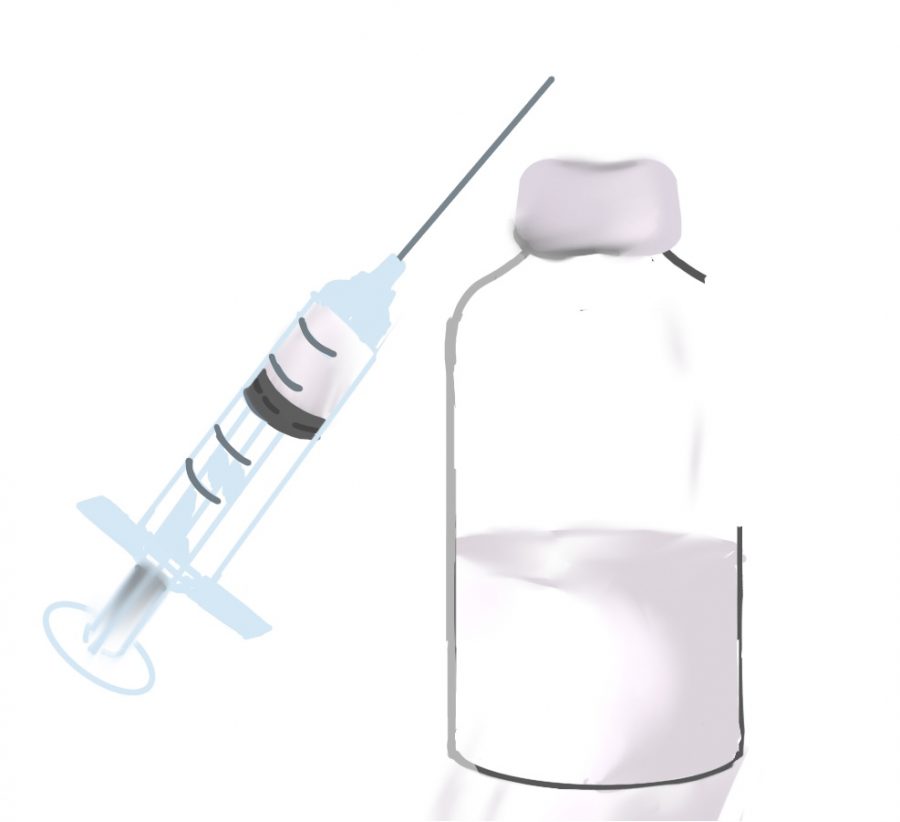Pfizer COVID-19 Vaccine Approved By FDA
January 18, 2021
On December 11, 2020, the Pfizer COVID-19 vaccine was given emergency authorization by the Food and Drug Administration to prevent the spread of the virus in the United States and among its inhabitants.
According to the Centers for Disease Control and Prevention [CDC], “The goal is for everyone to be able to easily get vaccinated against COVID-19 as soon as large enough quantities are available. Once the vaccine is widely available, the plan is to have several thousand vaccination providers offering COVID-19 vaccines in doctors’ offices, retail pharmacies, hospitals, and federally qualified health centers” (cdc.gov).
“A second shot three to four weeks after your first shot is needed to get the most protection the vaccine has to offer against this serious disease,” according to the CDC (cdc.gov).
“More than 27,000 new COVID-19 deaths have been reported in the United States in the first ten days of 2021, according to data from Johns Hopkins University,” CNN reports. “At this pace, January could have more deaths than December, which saw a record of 77,431 total COVID-19 deaths. April saw the second highest number of deaths with 60,750 fatalities, the data showed” (cnn.com).
The immunitive properties of the vaccination are not immediate. The CDC website states, “It typically takes a few weeks for the body to build immunity, protection against the virus that causes COVID-19, after vaccination. That means it’s possible a person could be infected with the virus that causes COVID-19 just before or just after vaccination and still get sick. This is because the vaccine has not had enough time to provide protection” (cdc.gov).
Junior Scarlet Triffly said, “I would take the vaccine when it comes out to make sure I have the best chances possible not to catch the virus. I would want to return to school as soon as it’s safe, because I miss the environment.”
KHOU 11 News reported that the most common side effects to the vaccine were mild symptoms; some complained of headaches, and dizziness, and a few experienced nausea. Some people reported more than one of those symptoms. The CDC data also revealed thirty five hospitalizations of those receiving COVID-19 vaccines. Summaries of their symptoms include heart palpitations, severe abdominal pain, seizures and ‘almost stroke like symptoms.’ Several people also complained they couldn’t breathe after receiving the shot” (khou.com).
The FDA asserts that such extreme side effects are “remote,” and most have been credited to allergic reactions from the vaccine’s ingredients. The FDA urges those scheduled to receive the vaccine to review its ingredients to determine if there are any ingredients that the recipient may have an adverse reaction to (fda.gov).
The CDC instructs, “If you need help scheduling your vaccine appointment for your second shot, contact the location that set up your appointment for assistance. For questions or if you are having trouble using vaccine management or scheduling systems, reach out to the organization that enrolled you in the system. This may be your state or local health department, employer, or vaccine provider” (cdc.gov).



Sevilla Tovar • Feb 5, 2021 at 1:05 pm
I really like your article! I wasn’t aware of people needing to go to the hospital as a result of the vaccine. Thank you for spreading awareness so people who are unknowingly allergic to the vaccine will be able to check.
Summer Ingalls • Feb 5, 2021 at 12:54 pm
Hi Josh! Lovely article, I found it extrememly informative. I love how you mentioned not only about the vaccine and how it works but all about the side effects and how to schedule an appointment etc. because that is truly information we need to know!
Ghada Atalla • Feb 5, 2021 at 12:52 pm
This is a very informative article.